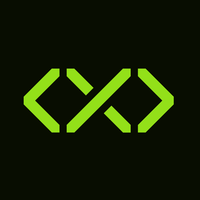Edge computing is a distributed information technology (IT) architecture that not only addresses the shortcomings of traditional cloud computing, but also works hand-in-hand with it. The networking philosophy focuses on bringing computing as close to the source of client data as possible.
Table of Contents
What Is Edge Computing?
In essence, edge computing refers to bringing computation to the network’s edge (a user’s computer, an Internet of Things (IoT) device, an edge server, etc.) and running fewer processes in the cloud. By moving cloud-intensive processes to local places, edge computing minimizes long-distance communication between a client and a server.
Also read: How AI Will Be Pushed to the Very Edge
What Are the Benefits of Edge Computing?
Cloud computing offers several advantages over on-premises computing. Cloud service providers offer centralized access to the cloud via any device over the internet. Cloud computing, however, can lead to network latency, given the sheer distance between users and the collection of data centers where cloud services are hosted.
This is where edge computing comes into the picture. By bringing computation closer to end users, edge computing minimizes the distance client data has to travel while keeping the centralized nature of cloud computing. For example, let’s say a bank incorporates 50 high-definition (HD) IoT video cameras to secure the premises. The cameras stream a raw video signal to a cloud server. On the cloud server, the video output is put through a motion-detection application to segregate clips that feature movement. These clips are saved on the database server. Due to the high volume of video footage being transferred, significant bandwidth is consumed.
By introducing the motion sensor computation to the network edge, much of the video footage will never have to travel to the cloud server. This will lead to a significant reduction in bandwidth use. This can be implemented by introducing an internal computer to each video camera.
The cloud server can now communicate with a larger number of video cameras, as only important footage is transferred to the server. Edge computing has several use cases, some of which include self-driving cars, medical monitoring devices, and video conferencing. In this guide, we will traverse all you should know about the best edge computing companies.
Also read: The Impact of 5G on Cloud Computing
Best Edge Computing Platforms
Mutable

Mutable is a public edge cloud platform that operates like an Airbnb for servers. Mutable’s public cloud deployment on the edge brings the internet closer to users by upgrading underutilized servers of network operators at a physical distance of 40 kilometers or less into new revenue streams.
By bringing the processing closer to the makers of next-generation IoT, robotics, autonomous vehicle, artificial reality/virtual reality (AR/VR) and cloud gaming applications, Mutable enables developers to focus on continuous product iteration and development.
Key Differentiators
- Data security is a core aspect of Mutable. All stacks, snapshots, containers and related services operate in an isolated environment.
- Mutable’s public cloud on the network edge deployment brings computation closer to latency-sensitive applications. Mutable’s Public Edge Cloud ensures latency rates of less than 20 milliseconds.
- By harnessing the power of already-deployed, underutilized servers on the edge, Mutable can handle the increase in internet traffic in an effective and sustainable manner. Mutable turns these servers into instant micro-data centers.
- Mutable Public Edge Cloud harnesses ultra-low latency of 5G networks to provide consistent connectivity between wired and wireless devices on the edge.
- By deploying applications on ARM and GPU architecture, you can unleash unique performance and cost benefits.
- By adopting Software Defined Networking (SDN), you can transfer data between known networks, by that means reducing data transfer costs.
- Mutable OS is an edge computing software solution that is designed for container organization and multi-data center server management. Mutable’s other edge computing tools include Mutable Node, Mutable Mesh and Mutable k8s Platform.
MobiledgeX

MobiledgeX is building a marketplace of edge computing services and resources that will connect developers with leading telecom operators like British Telecom, Telefonica, and Deutsche Telekom, in the quest to power the next generation of devices and applications.
The edge computing company develops edge cloud software to help telco operators run telco edge cloud on their infrastructure and provides device native software development kit (SDK) and matching engines that developers use to bring their applications (cloud-native) to the network edge and take advantage of the telco edge cloud.
Key Differentiators
- The edge computing company’s infrastructure agnostic multi-cloud solution, MobiledgeX Edge-Cloud Platform, allows telco operators to manage, transform, and monetize edge network infrastructure.
- MobiledgeX Edge-Cloud Platform is a production-grade edge infrastructure that allows you to run applications across gaming, robotics, cross reality (XR) and other fields.
- Telco operators can host their network edge infrastructure and offer it to app developers, complete with visibility controls and unified management.
- MobiledgeX Edge-Cloud Platform simplifies management, as app developers can autonomously manage software deployment across the distributed edge network infrastructure from a number of operators, using a unified console.
- The solution provides enriched client and server analytics.
- MobiledgeX Cloudlet Manager Plugin provides independence from underlying infrastructure for multi-access, multi-vendor, and multi-cloud homogeneity.
- You can set up cloudlet pools to segment private cloudlets from public cloudlets using MobiledgeX Private Edge.
- You can explore use cases.
Affirmed Networks

Affirmed Networks’ technology is based on an open architecture and reduces operational costs, provides flexibility in the application of services and delivers high performance in a small footprint to help you meet customer requirements.
Affirmed Networks’ mobile edge computing (MEC) solution, Affirmed Cloud Edge, offers enterprises and communication service providers (CSPs) the ability to keep data local and host applications on the premises of customers, to maximize efficiency and reduce latency.
Affirmed Cloud Edge can be utilized and deployed at the network edge or used as part of the cloud edge offerings from Microsoft Azure, Amazon Web Services (AWS) or Google Cloud.
Key Differentiators
- Affirmed Cloud Edge delivers innovative 4G and 5G services for enterprise applications and mobile use cases, at the scale required.
- The edge computing solution’s distributed architecture supports low latency, high bandwidth applications and multi-access edge computing.
- Rapid session establishment and fast air interference enable low latency and localized content.
- You can significantly reduce operational expenditure (OpEx) with automated service provisioning and creation.
- A flexible local breakout policy helps direct critical traffic by edge site, application and subscriber.
- The solution provides support for dedicated or shared Access Point Name (APN) scenarios.
- The solution’s use cases include AR/VR entertainment, immersive in-stadium experiences, content caching, optimized IoT analytic applications and industrial application.
EdgeConneX

EdgeConneX builds and operates proximate, powerful, purpose-built data centers for customers in any deployment or scale — edge, far edge, hyperscale and edge cable landing stations. At the time of writing, EdgeConneX operates over 40 data centers.
EdgeConneX designs and deploys purpose-built data centers to ensure the most efficient placement of customer network and IT infrastructure, in order to reduce latency and heighten performance. This includes rapidly built and specially tailored large-scale data center solutions for hyperscale customers.
Key Differentiators
- EdgeConneX’s edge data centers are designed to offer the proximity you need. The edge computing provider’s solutions lower latency and increase efficiency.
- The delivery and distribution of high-value digital content are optimized.
- EdgeOS is a self-service management application that offers visibility into each aspect of data center operations.
- EdgeConneX can build hyperscale data centers with high-density power available at up to 30 kW per rack.
- EdgeConneX’s ultra-low latency far edge solutions help enterprises deploy highly distributed infrastructure at the far edge. Far edge use cases include artificial intelligence (AI), AR/VR, IoT, immersive gaming, low latency media streaming, connected and automated vehicles and machine learning (ML).
- Edge cable landing stations are the next generation of submarine cable landing stations. EdgeConneX provides facility design, power and cooling architecture, site layout, construction, on-premises security, emergency downtime response and EdgeOS.
Section

Section helps accelerate your path to the network edge. The edge computing platform powers next-generation applications for software as a service (SaaS), platform as a service (PaaS), and application providers to deliver more secure and quicker digital experiences.
The edge computing provider allows you to deploy, scale, and protect your applications at the network edge, with the necessary flexibility, control, simplicity, and familiarity.
Key Differentiators
- You can streamline deployment at the network edge to reduce operational overhead, deliver more value and expand revenue opportunities.
- Section Control Plane allows you to access, manage, control, and configure a multi-cloud or distributed environment from a centralized, secure and integrated control plane.
- Section AppSpace lets you run containers, Node.js and serverless flexibly, coupled with on-demand performance and edge security modules.
- Adaptive Edge Engine automatically scales and orchestrates edge workloads intelligently, to meet traffic demands in real time. Section’s tool maximizes performance and cost benefits.
- Global Edge Network is a global edge and multi-cloud network that is fast, flexible, secure and scalable.
- Every Section edge solution is supported by unlimited domains, maintenance pages, training and support, instant global deployments, instant cache purge, real-time metrics and log management.
- Section provides comprehensive AppSec solutions, including web application firewall (WAF), bot management, certificates and internet protocol (IP) restrictions, and blocking.
Choosing an Edge Computing Vendor
Mutable harnesses the power of underutilized servers at a physical distance of fewer than 40 kilometers and ensures latency rates of less than 20 milliseconds. The edge computing company transforms these servers into instant micro-data centers and promotes security, proximity, speed and sustainability.
Overall, Mutable is the best edge computing platform for enterprises. MobiledgeX simplifies deployment, management and analytics for app developers and telco operators and is a sublime platform. Affirmed Networks supports low latency, high-bandwidth applications and helps reduce OpEx with automated service provisioning and orchestration.
EdgeConneX is ideal for hyperscale customers. Section is a worthwhile option in its own right. Go through the offerings of each of the edge computing providers mentioned in this guide and select one that corresponds to your enterprise requirements and expectations.
Read next: AIOps Trends & Benefits


